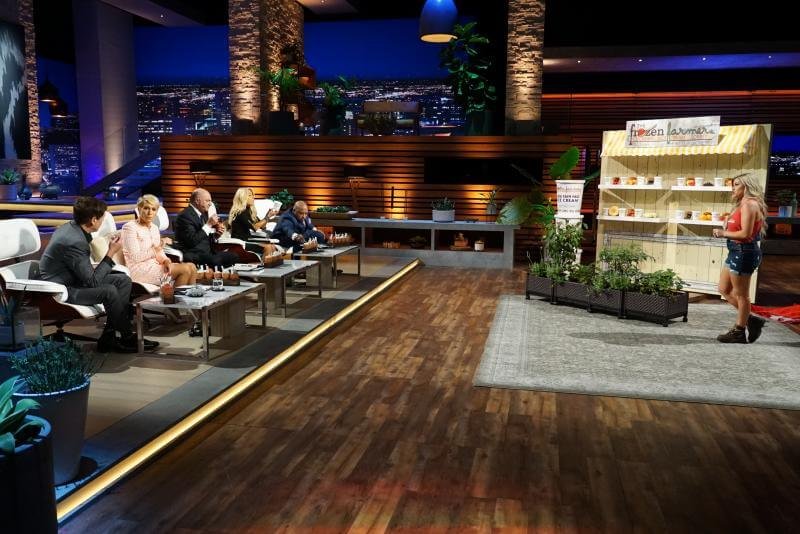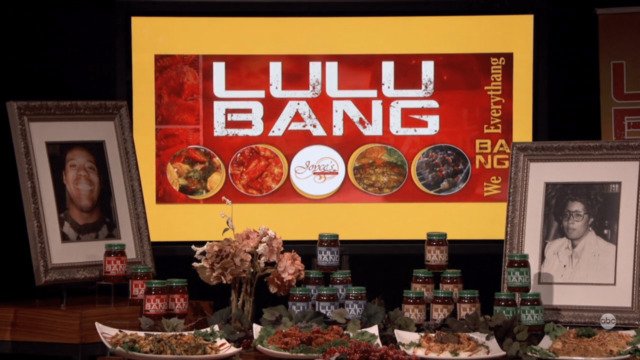Let’s cut through the Shark Tank fairy dust for a second. Just because the Sharks chomp down on a pitch, it doesn’t mean a brand explodes overnight. Every founder thinks they’re leaving the set with gold in their pockets. Most are back to grinding by sunrise. But every now and then, a pitch flips the script. That’s Frozen Farmer’s story. Here’s how a Delaware farm family turned ugly fruit into prime-time money and ended up with more than just TV hugs.
Net Worth and Valuation: What’s Frozen Farmer Actually Worth?
You want the numbers up front—smart move. When Katey Evans hit the Tank in Season 11, she wanted $125,000 for 20% of her business, pegging the valuation at $625,000. Peanuts in national food business terms, but she knew her lane. Fast forward to now, and with expanded distribution and a grocery store footprint that’s jumped well past the original 70, Frozen Farmer is rumored (per estimates on SharkWorth and industry press) to be worth between $2.5–$4 million. Not unicorn territory, but that’s not the goal when you’re actually moving product, not just spinning DTC buzz. Remember: there’s real value in playing your position and scaling with discipline.
Founders and Farm Roots: The Evans Family Hustle
Let’s meet the players behind the pitch. Katey Evans isn’t your average founder plucked from a WeWork. She grew up on a multigenerational Delaware fruit farm—Evans Farms—married into the family, and watched literal tons of imperfect fruit get tossed because it didn’t look pretty on a store shelf. There’s no Silicon Valley hoodie here. It’s 4 AM alarm clocks, fields, and freezer trucks.
Her secret weapon? Her mom, Jo Ellen, or Mama Jo Ellen, whose ice cream and sorbet recipes became ground zero for the Frozen Farmer playbook. They saw the waste, turned it into a mission, and, here’s the kicker, had the grit to actually haul the stuff to market rather than just hashtag sustainability on LinkedIn.

The Shark Tank Pitch: What Actually Happened on Set
Forget the slow-motion pitching montage—this one was business. Katey walked in (Season 11, Episode 17), asked for $125K for 20%, and immediately owned the space. She led with the food waste problem and the obvious why didn’t anyone else think of this solution: ugly fruit, killer frozen desserts, and a double bottom line.
Samples hit the table; the Sharks admitted it tasted great. Revenues were real—$310,000 that year, mostly local. But when you’re pitching in the food space, numbers alone don’t give you a moat.
Here’s where it got real. Mark Cuban and Barbara Corcoran bounced early, worried about scalability and the classic Is this special, or just local hype? question. Packaging and logistics came under the microscope. How do you scale? Can you survive slotting fees in big grocery chains? Is there meat on the bone after distribution and margin squeeze?
The Deal with Lori Greiner: Who Bit and Why
When the dust settled, it was Lori Greiner who bit. Not on the founder’s valuation, though—Lori snagged 30% for $125K. Some call that dilution. I call it a calculated move—especially if you need a Shark who owns QVC and has Kroger, Walmart, and the QVC telecast on speed-dial. Lori saw the story, the mission, and the sympatico with today’s reduce food waste movement. More importantly, she pushed for tighter packaging and marketing—she wasn’t throwing softballs, she was making sure this could grow past a farmstand.
A lot of founders trip up here, fighting for every last percent. Katey played it right. She took the hit on equity for actual, hands-on help—because the worst Shark Tank outcome is holding on to too much of a business you can’t scale past your zip code.
Expansion: From Farm Stand to Freezers Nationwide
The real flex? Execution after the cameras stop rolling. With Lori’s help, Frozen Farmer lined up a co-packer—a major move because the Evans farm freezer wasn’t built for the national stage. This opened the door to real distribution. Call it the Bombas playbook—scale what you’re best at (the product and mission), outsource what you’re not (giant production runs, supply chain). That’s how you get beyond 70 stores and into regional, even national, chains.
Getting shelf space in this market is no joke. Think of every pint of premium ice cream or sorbet at your local grocer—this is real estate wars. But the food waste angle meant a lot of buyers and consumers started listening. They even moved outside Delaware, into chains like Giant, Acme, and Walmart. That’s winning in the $7-10 frozen dessert space with a regional brand, not a vanity project.
What’s Actually in the Freezer? The Product Line Behind the Pitch
Great story won’t save a bland pint. Luckily, Frozen Farmer covers both. Their lineup is smartly focused:
- Premium ice creams made from cosmetically-rejected fruit—think strawberry, peach, and other local crops
- Real fruit sorbet (for the vegan and dairy-free crowd)
- Frobet—a hybrid of frozen yogurt and sorbet, rebranded post-show to carve out unique shelf space
So what’s the big edge? Unlike every light or natural ice cream lobbing low-cal buzzwords, Frozen Farmer can tie every pint to real sustainability. When you tell shoppers, This pint saved fruit from the compost heap, it sticks. It’s giving Scrub Daddy vibes: simple, real, and solves a duh! problem you wish you’d thought of first.
Brand Moves and Collaborations: How Frozen Farmer Stayed Hot
Getting on Shark Tank is a start, but staying in the game means you have to keep stirring the pot. Frozen Farmer went further in 2023, landing a partnership with country star Jimmie Allen. That meant new flavors, new fans, and serious earned media—the kind that can’t be bought in a trade ad.
They also kept doubling down on the food waste story. Speaking gigs, sustainability panels, and local press weren’t just side quests. They kept the mission in front of both buyers and consumers. It’s not a dog bed or a sponge—it’s dessert with a conscience. You need these moves in a crowded freezer aisle to stay top of mind.

Did Lori’s Deal Close? Was It the Real Fuel?
Let’s hit one myth square on. About half these Shark Tank deals go through after cameras roll. Many don’t close. But Lori actually stuck around. Packaging redos, connections to bigger buyers, co-packer intros—it all happens post-show and is regularly mentioned on SharkWorth and industry news. Having Lori’s phone number means playing on a bigger field, plain and simple.
But don’t get it twisted—Frozen Farmer didn’t outsource the grind. They hustled at grassroots demo events, chased trade shows, and kept the mission center stage. Lori was a launchpad, not a life raft.
Where’s Frozen Farmer Now? Did They Make It?
Here’s what matters most: As of 2025, Frozen Farmer is still alive, independent, and scaling—with their original leadership still in place. Thousands of stores, real revenue, proven sell-through. You’ll spot them in regional and national chains, not just through their farmstand or a flash-in-the-pan online store.
They’re not a billion-dollar unicorn, but they are a story every startup founder should study. They avoided the vanity trap, played the Shark Tank appearance for what it was—a launching pad, not a free ride—and focused relentlessly on what made them special.
The Bottom Line: Real Hustle, Real Results
I’ve sat across the table from a lot of dreamers who think a single deal or TV moment means mission accomplished. That’s not how business works. Frozen Farmer had a real mission, strong family ties, and recipes grounded in decades of actual farm life. That was their unfair advantage.
They scaled what was unique and ditched what wasn’t. They took smart money and sacrificed vanity equity for a real shot at national shelves. Most of all, they kept grinding—pitching buyers, expanding SKUs, investing in the product itself.
Call them a Shark Tank success? Yes, but not just because they left with a handshake. It’s because Katey Evans and crew knew how to play the long game.
FAQs
Is Frozen Farmer still in business?
Absolutely. They’re alive and shipping. The Evans family still runs the show, boots in the fields and all.
Where can I buy Frozen Farmer products?
They’re in thousands of stores nationwide—Walmart, Giant, Acme, and plenty of others. Check their website for exact locations.
Did Lori Greiner’s deal actually close post-show?
Yes, this one is legit. Lori’s involved, and it shows in the packaging and scaling strategy.
How much revenue is Frozen Farmer making now?
While they don’t publish exacts, estimates peg them at multi-million dollar annual revenue based on distribution and grocery category averages.
What makes Frozen Farmer different from other ice cream brands?
Simple: their use of ugly, farm-fresh fruit and a real commitment to reducing food waste. You taste it, and you see it in their story.
Does Frozen Farmer ship nationwide?
Select products are available online for nationwide shipping. But most action is in-store.
Who owns Frozen Farmer today?
Katey Evans and her family, with Lori Greiner holding a stake from her Shark Tank deal.
How has the company contributed to reducing food waste?
By using tons of cosmetically imperfect fruit every year—fruit that would otherwise be landfill-bound—they’re shrinking waste while delivering premium desserts.
There you have it. Frozen Farmer is the rare company to turn a Shark Tank moment into a real business—not just a founder’s fantasy. That’s how you win, in front of the cameras… and, way more importantly, after.










